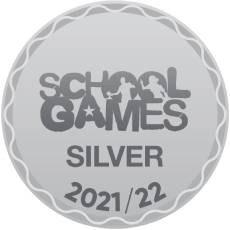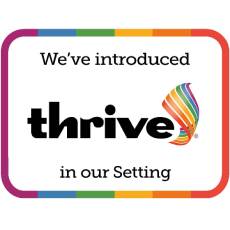British Values
As a Catholic school, St Mary’s RC Primary School promotes values that are both Catholic and British. By our words and actions, we live out the ‘British values’ listed by the government. However, we do much more than that, seeking to base all that we do on the teachings of Jesus Christ. We provide a Catholic curriculum, which is broad and balanced, recognising that every pupil is unique and is created in the image of God (Gen 1:27). Catholic Religious Education is the “core of the core curriculum” (Pope St John Paul II) and the foundation of the entire educational process.
Our school’s Mission Statement commits us to the education of the whole child (spiritual, physical, intellectual, moral, social, cultural, emotional) and at St Mary’s we endeavour to provide strong pastoral support for our pupils and families. Furthermore, we strive to raise pupils’ self-esteem, help them to grow in knowledge and understanding, recognise the value of all persons and develop positive, caring and sensitive attitudes. We enable our children to become healthy, independent and responsible members of a diverse multicultural society. We encourage our pupils to play a positive role in contributing to the life of the school and the wider community. In so doing we help develop their sense of self-worth. We teach them how society is organised and governed, ensuring that they experience the process of democracy within school, learning about rights and responsibilities. We want St Mary’s pupils to gain in confidence and to develop aspirations for their futures, so that they are well-prepared for their transition to high school - and ready to move forward with positive experiences in their journeys through life.
By living our faith, we uphold the British Values of; Democracy, Rule of Law, Individual Liberty, Mutual Respect and Tolerance of Different Faiths in the following ways:
|
Value
|
Evidence
|
|
Democracy
|
- Mission Statement.
- Children and staff have many opportunities for their voices to be heard at St Mary’s via meetings, audits, questionnaires, pupil voice interviews and in lessons.
- Parents’ opinions are welcomed at St Mary’s through methods such as having an ‘open-door’ policy, questionnaires, PTA meetings, surveys at parents’ evenings and opportunities to comment on whole school matters e.g. after school provision.
- Regular voting for representative members of the School Council, ECO Leaders and Gift Team.
- Debates and discussion in the foundation subjects.
- RE & PHSE Curriculum.
- Practical strategies such as: conscience alley.
- Curriculum topics which explore ancient civilisations and which contrast political systems across the world.
- Pupils are always listened to by adults and are taught to listen carefully and with concern to each other, respecting the right of every individual to have their opinions and voices heard. We encourage pupils to take ownership of not only their school but also of their own learning and progress. This encourages a heightened sense of both personal and social responsibility and is demonstrated on a daily basis by our pupils.
|
|
The Rule of law
|
- Mission Statement/ School aims.
- Behaviour Policy.
- Display of our Marvellous Manners and Positive Powers in each classroom.
- Playground rules (displayed on playground walls in each Key Stage).
- Lunchtime rules.
- Caritas (Faith in Action).
- Curriculum links e.g. Crime and Punishment.
- The importance of rules and laws, whether they be those that govern our school or our country, are referred to and reinforced often, such as in assemblies and when reflecting on behaviour choices. At the start of the school year, each class discusses the school rules and class routines, principles that are clearly understood by all and seen to be necessary to ensure that every class member is able to learn in a safe and ordered environment. These rules play a fundamental role in our behaviour consequences and rewards and are linked to our Reward Time throughout school.
- Pupils are taught the value and reasons behind laws, that they govern and protect us, the responsibilities that this involves, and the consequences when laws are broken. These values are reinforced in different ways:
- Visits from authorities such as the police and fire service;
- Cycling Proficiency lessons enable children to understand the rules of the road and the potential dangers encountered should they break those rules;
- During Religious Education, when rules for particular faiths are thought about;
- During other school subjects, where there is respect and appreciation for different rules.
|
|
Individual Liberty
|
- Mission Statement/School aims.
- Behaviour policy.
- PSHE policy.
- Displays of children’s activities.
- Children’s key roles, rights and responsibilities.
- Alongside rules and laws, we promote freedom of choice and the right to respectfully express views and beliefs. Through the provision of a safe, supportive environment, we provide boundaries for our pupils to make choices safely; for example:
- choices about how they can improve their learning;
- choices around the participation in extra-curricular activities.
- Our pupils are encouraged to know, understand and exercise their rights and personal freedoms and are taught how to exercise these safely, such as in our PSHE Ten Ten lessons. We use the Ten Ten resource across the whole school which also links to assemblies.
- Collective worship is used to both explore and support the school’s values. By teaching the children how to manage and understand emotions they will be motivated and equipped to:
- Be effective and successful learners
- Make and sustain friendships
- Deal with and resolve conflict evenly and fairly
- Solve problems with others by themselves
- Manage strong feelings such as frustration, anger or anxiety
- Be able to promote calm and optimistic states that promote the achievement of goals
- Recover from setbacks and persist in the face of difficulties
- Work and play cooperatively
- Compete fairly and win or lose with dignity and respect for all competitors
- Recognise and stand up for their rights and the rights of others
- Understand the value the differences and commonalities between people, respecting the rights of others to have beliefs and values different to their own.
- To respect and value our world, and the things, both material and alive that exist within it.
- Children in Year 5 and 6 are given key roles and responsibilities such as Play leaders, Playground Buddies, Reading Buddies, Sports ambassadors and Prefects.
- Through opportunities such as our extra-curricular and Lunch Time clubs, Reward Time and Residential Trips, pupils are given the freedom to make safe choices.
- Children at St Mary’s are encouraged to make choices knowing they are in a safe and supportive environment.
|
|
Mutual Respect
|
- Mission Statement/School aims.
- Behaviour policy.
- PSHE policy.
- Roles and Responsibilities.
- Display of children’s activities.
- Display of positive values around school.
- We have high expectations of achievement and behaviour. Children and staff are polite and kind. We believe everyone has their own special gifts and we are expected to use them.
- We listen and respect each other. We teach the children that conflict will be dealt with calmly and fairly. All members of the school family are valued equally. We celebrate each other’s achievements whether that be in or out of school through our weekly Award Assemblies.
- Teachers plan exciting, interesting, challenging and innovative lessons where everybody is expected to do their best and respect others.
- When our older children are given key roles and responsibilities to work alongside younger children this helps to promote mutual respect across the age phases. E.g. Reading buddies,Mental Health Champions.
|
|
Tolerance for those of different faiths and beliefs
|
- Mission Statement /school aims.
- PSHE policy.
- RE policy.
- Worship records.
- Class and school assemblies.
- Alternative faith work as part of the RE curriculum coverage – World Faiths theme days.
- St Mary’s are proud to promote and celebrate our different backgrounds and beliefs. Tolerance, politeness and mutual respect are at the heart of our aims, ethos and RE curriculum.
- We ensure that our pupils develop the skills and knowledge to be able to live and work alongside people from all backgrounds and cultures in the future. This will be particularly necessary in a future where technological advances will make the 'world a smaller place.'
- Our pupils know and understand that it is expected that respect is shown to everyone and to everything, whatever differences we may have. Children learn that their behaviour choices have an effect on their own rights and those of others. All members of the school community are encouraged to treat each other with respect.
- Specific examples of how we at St Mary’s Primary enhance pupils’ understanding and respect for different faiths and beliefs are:
- Through Religious Education, PSHE and other lessons where we develop awareness and appreciation of other cultures – in English through fiction and in art and music by considering cultures from other parts of the world.
- Celebrating cultural differences through assemblies, themed weeks, noticeboards and displays.
- Children are encouraged to share their own experiences when celebrating their own faith. Daily worship reflects and teaches the children tolerance for different faiths and beliefs. We have our school prayers which the children collaborated on and which encompass a shared belief and value.
- Activities within school support both children and adults of different or no faith, the children are taught respect and tolerance of these groups and the opinions of the groups are taken into account with all activities.
- Whilst instances contrary to our values are relatively rare, each is treated seriously in line with our policies and expectations.
|


